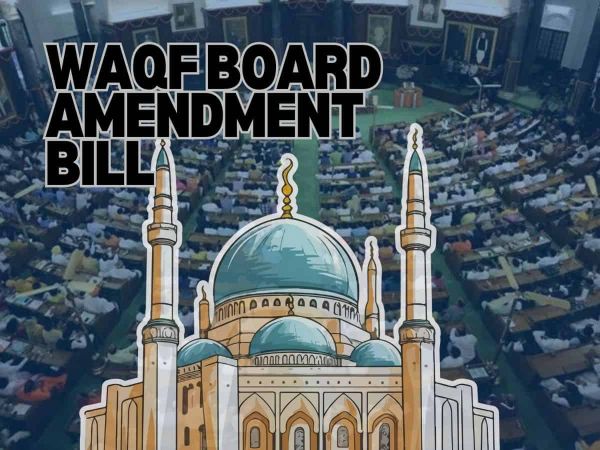
New Delhi: The Union Cabinet has approved the amendments to the Waqf (Amendment) Bill, incorporating the changes recently recommended by the Joint Parliamentary Committee (JPC), sources said on Thursday.
The Bill will now be tabled for discussion and passage in the second half of the budget session, which will be held from March 10 to April 4. The first part of the budget session was held from January 31 to February 13. The Cabinet accepted 14 alterations made by the JPC in its meeting on February 19, the sources said.
The Waqf (Amendment) Bill proposed 44 changes to laws governing central and state Waqf boards. The proposals which include nominating non-Muslim and (at least two) women members to a Waqf Board triggered furious protests from the opposition. The Bill was referred to the JPC in August 2024 after it was introduced in the Lok Sabha by the Minister of Minority Affairs, Kiren Rijiju.
The parliamentary panel adopted the report with a majority vote, while all 10 MPs from opposition parties in the panel had objected to the report. They had also moved dissent notes. Sources have said that the government has incorporated most of the changes recommended by the JPC headed by Jagdambika Pal, and the Cabinet cleared it last week along with the Indian Port Bill.
Key amendments to the Bill include renaming the Waqf Amendment Bill 2024 with the proposed name, ‘Unified Waqf Management, Empowerment, Efficiency and Development (UMEED) Bill’, the State Waqf Boards will include one member from the Muslim OBC community, safeguarding women’s inheritance rights, uploading all Waqf property details on a central portal within six months. On August 8, 2024, two Bills — the Waqf (Amendment) Bill, 2024, and the Mussalman Wakf (Repeal) Bill, 2024 — were introduced in the Lok Sabha to streamline the Waqf Board’s work and ensure the efficient management of Waqf properties.
The objective of the Waqf (Amendment) Bill, 2024, is to amend the Waqf Act, 1995, to redress the issues and challenges in regulating and managing Waqf properties. The Amendment Bill seeks to improve the administration and management of waqf properties in India. It aims to overcome the shortcomings of the previous act and enhance the efficiency of Waqf boards by introducing changes such as renaming the Act, updating the definitions of waqf, improving the registration process, and increasing the role of technology in managing waqf records.
The primary objective of the Mussalman Wakf (Repeal) Bill, 2024, is to repeal the Mussalman Wakf Act, 1923, a colonial-era legislation that has become outdated and inadequate for managing waqf properties in modern India, according to a government press release. The repeal aims to ensure uniformity, transparency, and accountability in the administration and management of waqf properties and eliminating inconsistencies and ambiguities caused by the continued existence of this redundant law.